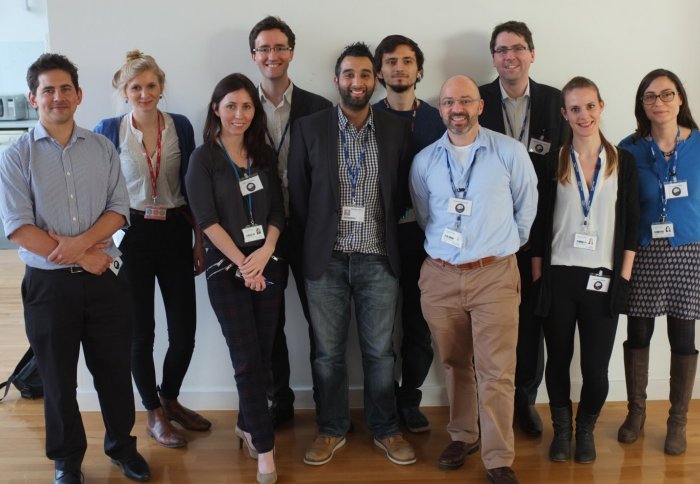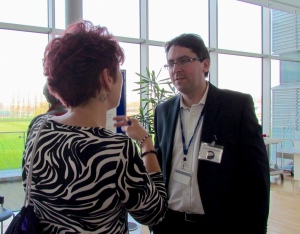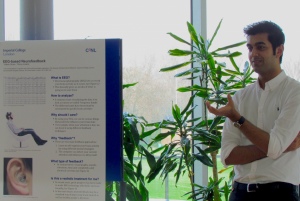Imperial researchers engage patients and carers in brain injury studies

Patients and carers participated in discussions with researchers at the Imperial Traumatic Brain Injury (TBI) research day.
The Imperial TBI research team held an event last week to engage patients and their families in studies and clinical trials that they are currently running in the unit.
Treatments for TBI often involve management of short term conditions but the long-term care and rehabilitation is often neglected. The Imperial TBI research team is one of few leading groups in the country to perform research that would impact patients who experience long-term conditions.
We aim to involve patients in our research through steering groups
– Professor David Sharp
The informal event took place at the Burlington Danes Building at Imperial College’s Hammersmith campus. Centred around a series of fascinating talks, it offered patients with TBI a chance to learn more about the research and participate in steering groups to help shape the direction of future life-saving work.

Professor David Sharp in discussion with a patient
The talks triggered lively discussions from patients and their carers with clinicians and scientists on a number of research topics. These included hormone imbalances and inflammation after TBI, a study to improve thinking ability after TBI as well as brain stimulation as a treatment after injury.
Speaking at the event, Professor David Sharp, Professor of Neurology and honorary consultant neurologist, said: “We aim to improve patients’ and carers’ understanding of what we do and actively involve them in the research process through steering groups linked to our research”.

Mr Temoor Naeem shares his experiences
One of the most inspiring talks was given by Mr Temoor Naeem, a junior doctor and former patient with TBI who shared his own experiences: “TBI can happen to any one of us,” he said “I blacked out and fell backwards 6 ft below. I was fortunate to receive treatment at the St. Mary’s Major Trauma Centre. The specialists explained the care plan at my level of understanding and included me in discussions about my treatment options.”
Mr Norman Keen, a founder member of Headway East London, a brain injury charity, and carer for his son who had suffered TBI, explained that the carer is often the support system of a patient with TBI and can be their main supervisor as well as the recipient of their frustrations.
He championed the services offered at Headway – which provides support, information and services to patients with a brain injury, their families, carers and professionals.
Dr Greg Scott, academic neurology registrar, spoke about an early study to identify the factors that cause inflammation following brain injury, which, if successful, will have the potential to prevent long-term conditions and improve long-term recovery.
Article text (excluding photos or graphics) © Imperial College London.
Photos and graphics subject to third party copyright used with permission or © Imperial College London.
Reporter
Press Office
Communications and Public Affairs
- Email: press.office@imperial.ac.uk
